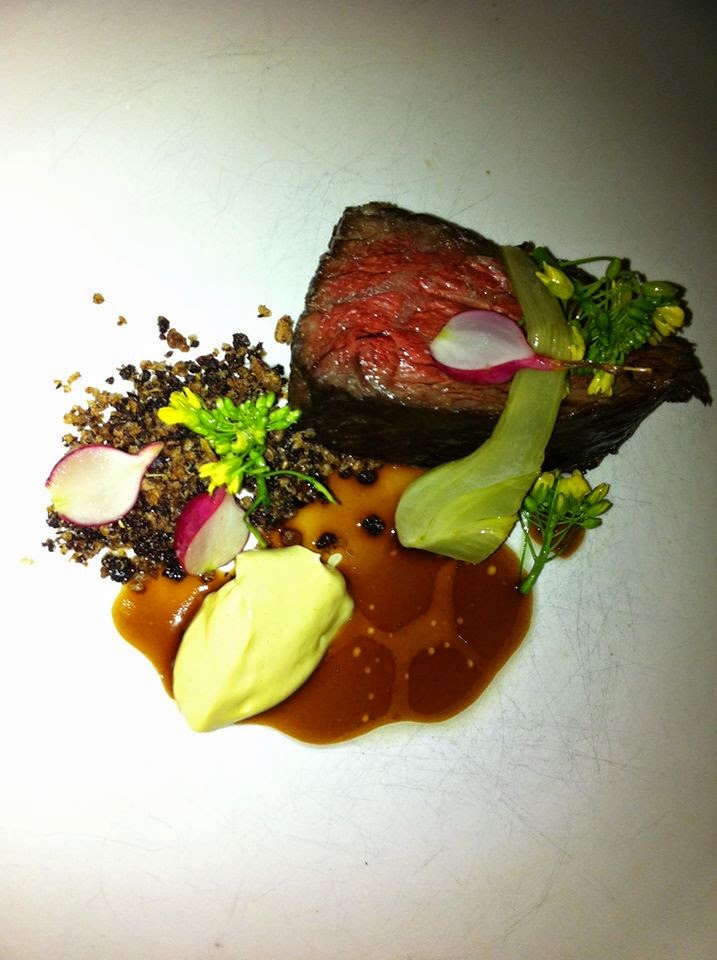It was an offer too good to refuse. Would I like to taste the new Moorilla wine range with winemaker Conor van der Reest, enjoy a private tour and dinner at MONA, and stay overnight in one of the luxurious MONA Pavilions to avoid the hour drive home?
Well, yes, actually I would.
The new wines are a great story and it is always terrific to say at MONA, where the eight pavilions overlook the Derwent River.
When textile merchant Claudio Alcorso purchased a block of land at Berriedale, north of Hobart, in 1957 he was told it was more suitable for fruit trees than for growing grapes – but he planted some riesling vines anyway and produced his first wine in 1962; making him one of the pioneers of the Tasmanian wine industry.
Well, yes, actually I would.
The new wines are a great story and it is always terrific to say at MONA, where the eight pavilions overlook the Derwent River.
When textile merchant Claudio Alcorso purchased a block of land at Berriedale, north of Hobart, in 1957 he was told it was more suitable for fruit trees than for growing grapes – but he planted some riesling vines anyway and produced his first wine in 1962; making him one of the pioneers of the Tasmanian wine industry.
Alcorso
also later purchased the St Matthias vineyard in the Tamar Valley,
which provided some of the premium fruit used in the wines Alcorso
made under the Moorilla label.
Both
the Berriedale site and the St Matthias vineyard were sold to David
Walsh in 1995 after Moorilla went into receivership and while the
Moorilla home vineyard remains, the site is now known worldwide as
MONA, Walsh's hugely successful museum complex.
Walsh
gave globe-trotting Canadian winemaker Conor van der Reest the go
ahead to build a new high-tech small batch winery at Berriedale and
van der Reest and Walsh also decided to relaunch Moorilla's legendary
cloth label with a series of wines that van der Reest determined
would represent the pinnacle of what the cool-climate fruit and his
winemaking team could do.
All
three wines in the cloth label series are made from fruit grown on
the St Matthias vineyard at Rosevears, which was planted in 1983 and
looks across the Tamar River.
Traditionally
the St Matthias vineyard produces wines that are racy and minerally –
and those elements shine in the three new releases launched earlier
this month at MONA; a 2004 Moorilla Cloth Label Late Disgorged
Sparkling, and a pair of wines from the 50th
anniversary 2012 vintage; a red blend and a white blend.
All
the cloth labels have been attached by hand, as was the tradition in
founder Alcorso's day.
The
bubbly, with a decade on lees, is outstanding and reflects van der
Reest's time working at Moet & Chandon. It is yeasty, rich and
intense; a complex but elegant blend of 64 per cent pinot noir and 34
per cent chardonnay with 2 per cent of 2013 base material added. It
will sell for $145 - and there will be no 05 release. It will only be
made in good vintages.
The
white ($110) is a blend of six varieties, a fleshy number that
comprises pinot gris, riesling, sauvignon blanc, chardonnay,
gewurztraminer and a small percentage of lightly pressed pinot noir
to add an exotic element to a complex, food-friendly wine with real
palate interest.
The
Cloth Label red (also $110), my undoubted favourite of the trio; a stunning blend of pinot noir, shiraz, cabernet sauvignon and cabernet
franc, with just a touch of riesling, in a style that calls to mind
some of the fine, elegant reds produced in the Loire Valley in
France.
This is a stylish, aromatic and expressive red, with
freshness on the lively palate and depth of flavour cloaked in a
lightness of being. Medium-bodied, complex and supple with oak just
adding structure without any obvious flavour, this is a benchmark on
its debut release.
Van
der Reest, who is remarkable among winemakers in that he grew up in
northern Canada and did not see his first grape vine until he was 18,
says he believes he has accomplished the mission Walsh gave to him.
“It
has been seven years from concept to release of creating a flagship
range and I think the wines we have released pay tribute to a
pioneering cool-climate winery that helped put Tasmania on the wine
map.” he says. “We wanted to link the past with the future, and I
think we have done that.
“I
hope we can show Australia something special and unique from
Tasmania.”
Of
course, wines like these are made in tiny quantities (160 cases of
the white, 94 of the red and 140 cases of the sparkling).
And what of my stay? Well MONA remains captivating, the meal was less than memorable (cold and under-seasoned, actually), but the accommodation was as good as it has always been with typical irreverent Walsh touches like a "please make up my room" sign that instead says: "l'm a messy bastard."
The eight high-tech pavilions offer the most luxurious
vineyard accommodation in the Hobart region (and adult toys like
double spa baths and heated lap pools),
The Source restaurant is perfect for leisurely
lunches and long dinners overlooking the Moorilla vineyards and the
Derwent River.
Guests can also taste the Moorilla range at the wine
bar, as well as sampling Moo Brew beers from the micro brewery.
The ultra-modern pavilions featuring eclectic artworks from the
collection of owner Walsh range from $430 to $950 per night.
mona.net.au.
























